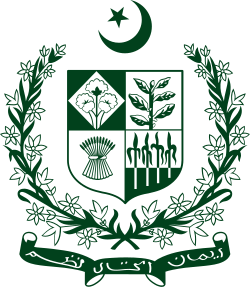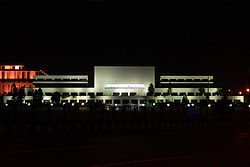Name Party Constituency Term Expires Seat Type Amir Chishti Muttahida Qaumi Movement – Pakistan Sindh March/April 2030 General Abdul Wasey Jamiat Ulema-e-Islam (F) Balochistan March/April 2030 Technocrats Agha Shahzaib Durrani Pakistan Muslim League (N) Balochistan March/April 2030 General Ahad Cheema Pakistan Muslim League (N) Punjab March/April 2030 General Ahmed Khan Andarh Khilji Pakistan Muslim League (N) Balochistan March/April 2030 General Aimal Wali Khan Awami National Party Balochistan March/April 2030 General Anwaar ul Haq Kakar Independent Balochistan March/April 2030 General Anusha Rahman Pakistan Muslim League (N) Punjab March/April 2030 Women Ashraf Ali Jatoi Pakistan People's Party Sindh March/April 2030 General Atta ul Haq Darvish Jamiat Ulema-e-Islam (F) Khyber Pakhtunkhwa March/April 2030 [ a] General Azam Swati Sunni Ittehad Council Khyber Pakhtunkhwa March/April 2030 [ a] Technocrats Bilal Khan Mandokhail Pakistan People's Party Balochistan March/April 2030 Technocrats Bushra Anjum Butt Pakistan Muslim League (N) Punjab March/April 2030 Women Dilawar Khan Jamiat Ulema-e-Islam (F) Khyber Pakhtunkhwa March/April 2030 [ a] Technocrats Dost Ali Jessar Pakistan People's Party Sindh March/April 2030 General Faisal Javed Sunni Ittehad Council Khyber Pakhtunkhwa March/April 2030 [ a] General Faisal Vawda Independent Sindh March/April 2030 General Hamid Khan Sunni Ittehad Council Punjab March/April 2030 General Hasna Bano Pakistan People's Party Balochistan March/April 2030 Women Ishaq Dar Pakistan Muslim League (N) Islamabad March/April 2030 Technocrats Jan Muhammad Buledi National Party (Pakistan) Balochistan March/April 2030 General Khalil Tahir Sandhu Pakistan Muslim League (N) Punjab March/April 2030 Minorities Mirza Muhammad Afridi Sunni Ittehad Council Khyber Pakhtunkhwa March/April 2030 [ a] General Mohsin Naqvi Independent Punjab March/April 2030 General Muhammad Aurangzeb Pakistan Muslim League (N) Punjab March/April 2030 Technocrats Murad Saeed Sunni Ittehad Council Khyber Pakhtunkhwa March/April 2030 General Musadik Malik Pakistan Muslim League (N) Punjab March/April 2030 Technocrats Nadeem Ahmed Bhutto Pakistan People's Party Sindh March/April 2030 General Nasir Butt Pakistan Muslim League (N) Punjab March/April 2030 General Niaz Amir Muqam Pakistan Muslim League (N) Khyber Pakhtunkhwa March/April 2030 General Noor-ul-Haq Qadri Sunni Ittehad Council Khyber Pakhtunkhwa March/April 2030 General Pervaiz Rashid Pakistan Muslim League (N) Punjab March/April 2030 General Poonjo Mal Bheel Pakistan People's Party Sindh March/April 2030 Minorities Quratulain Marri Pakistan People's Party Sindh March/April 2030 Women Rahat Jamali Pakistan Muslim League (N) Balochistan March/April 2030 Women Raja Nasir Abbas Jafri Majlis Wahdat-e-Muslimeen Punjab March/April 2030 General Rana Mahmood-ul-Hassan Pakistan People's Party Islamabad March/April 2030 General Rubina Khalid Pakistan People's Party Khyber Pakhtunkhwa March/April 2030 [ a] Women Rubina Naz Sunni Ittehad Council Khyber Pakhtunkhwa March/April 2030 [ a] Women Rubina Qaimkhani Pakistan People's Party Sindh March/April 2030 Women Sardar Umar Gorgaij Pakistan People's Party Balochistan March/April 2030 General Sarmad Ali Pakistan People's Party Sindh March/April 2030 Technocrats Syedaal Khan Nasar Pakistan Muslim League (N) Balochistan March/April 2030 General Syed Kazim Ali Shah Pakistan People's Party Sindh March/April 2030 General Syed Masroor Ahsan Pakistan People's Party Sindh March/April 2030 General Rana Sanaullah Pakistan Muslim League (N) Punjab March/April 2030 General Talha Mahmood Pakistan People's Party Khyber Pakhtunkhwa March/April 2030 [ a] General Zamir Hussain Ghumro Pakistan People's Party Sindh March/April 2030 Technocrats 
